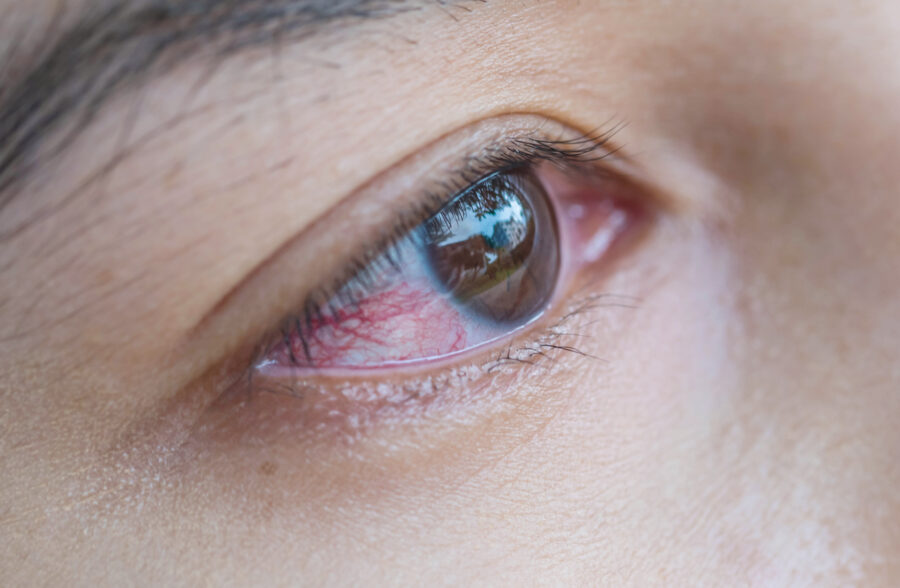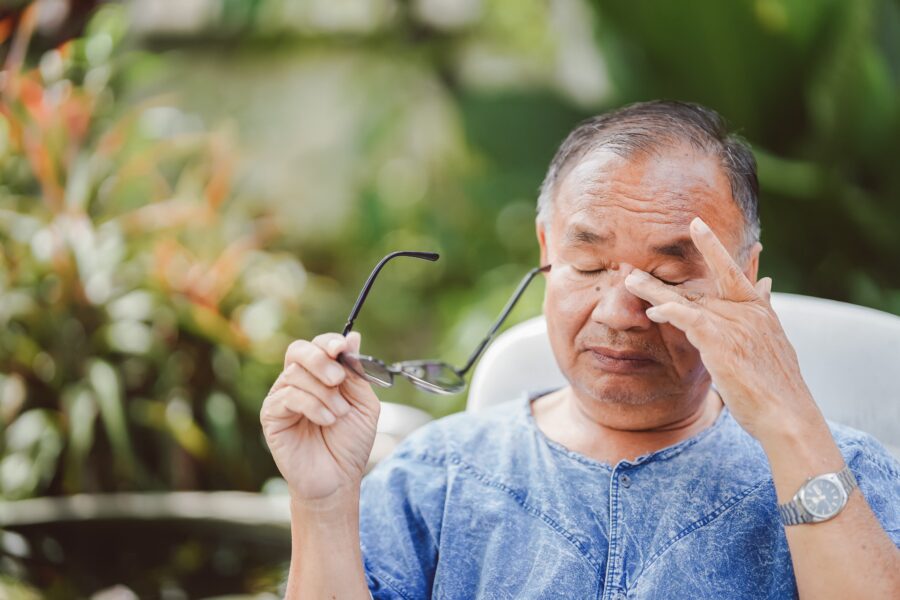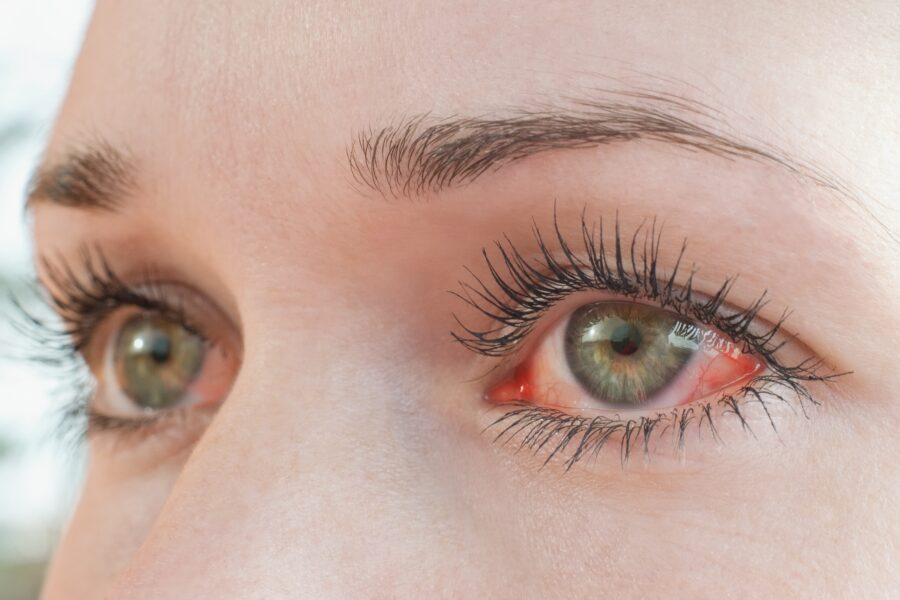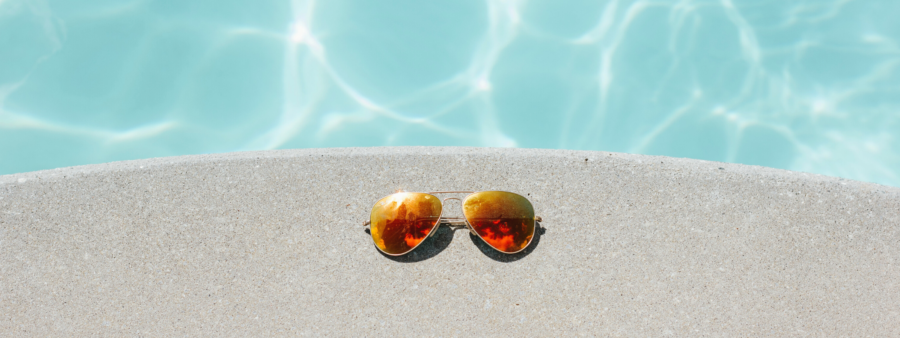Blog post
How to Protect Your Eyes from Hay Fever

Matthew Burford BSc(Hons) Optometry MCOptom - Domiciliary Optician and Professional Services Manager at OutsideClinic
5 minute read time
Hay fever is a common allergic reaction that occurs due to a reaction to pollen from grass, trees and weeds.
It is a common condition, with more than 10 million people suffering in the UK.

Why does hay fever affect my eyes?
Hay fever can lead to allergic conjunctivitis. Allergic conjunctivitis is inflammation of the conjunctiva, which is the tissue that lines the inside of your eyelids and covers the white part of your eyes.
This inflammation is triggered by the release of histamines, which are part of your body's immune response. The presence of these histamines can cause a number of symptoms.
What are the symptoms of hay fever that affect my eyes?
- Itchy eyes
- Watery eyes
- Red eyes
- Irritated eyes
- Tired eyes
- Puffy eyes
- Swollen eyes

Can hay fever cause any long-term vision problems?
Hay fever typically does not lead to any long-term vision problems.
Its symptoms are generally temporary and subside once the individual is no longer exposed to the allergen causing the reaction.
How can I differentiate between hay fever symptoms and other eye-related conditions?
And at what point should I speak to my optician?
Distinguishing between hay fever symptoms and other eye-related conditions can be challenging as the symptoms often resemble those of dry eye, conjunctivitis or even the presence of a foreign body in the eye.
If the symptoms persist or worsen over time, or if there is uncertainty about the cause, it’s worth having a chat with your optician. They can give you a complete eye check-up and figure out what's going on.
What about if I experience these symptoms outside of the summer months?
Hay fever is not strictly a summer condition. High levels of pollen can be present all throughout the year, even when it’s cold. You can check the pollen count on the Met Office website.
If you’re experiencing extreme symptoms even when the pollen count in your area is low, then your symptoms could be a result of a different condition. If this is the case, then it’s best to get your eyes checked by a professional.

What’s the best way to treat hay fever?
The best way to treat hay fever often involves a combination of lifestyle changes and medication.
Firstly, it's a good idea to reduce your exposure to the allergens that trigger your hay fever. This could mean staying indoors on high pollen days.
There are also some medications that can help: antihistamines and mast cell stabilisers.
Antihistamines work by blocking histamines (the chemicals your body produces in response to allergens). They can help reduce symptoms like sneezing, itching and a runny nose.
Mast cell stabilisers, on the other hand, prevent the release of histamines and other chemicals that cause allergy symptoms. This type of medication can be particularly helpful if you start taking it a few weeks before your hay fever season begins.
Remember though, everyone's different, and what works best for you might depend on your specific symptoms and how severe they are. It's always a good idea to speak to your doctor or pharmacist before starting a new treatment.
How can I prevent hay fever?
If you suffer from hay fever, it’s worth monitoring the pollen count. If the pollen count is particularly high in your area, there are some measures you can take to minimise hay fever symptoms:
- Minimise time outside
- Shower, wash your hair and change your clothing after arriving home to ensure you are not bringing pollen into your home
- Avoid drying washing outside
- Apply an effective allergen barrier balm around the edge of each nostril to trap or block pollens
- Keep windows and doors of your home closed where possible to avoid pollen coming in
- Wear sunglasses and a hat outside to shield your eyes from pollen
- If you wear contact lenses, consider switching to glasses for better comfort, particularly when outside
Will my glasses help protect my eyes from pollen? What about contact lenses?
Glasses, especially wraparound styles, can provide a measure of protection against pollen by partially shielding your eyes from airborne allergens.
Contact lenses, however, typically do not offer any significant protection against pollen.

By Matthew Burford BSc(Hons) Optometry MCOptom - Domiciliary Optician and Professional Services Manager at OutsideClinic
Matthew graduated from Aston University in 2004 with a degree in Optometry.



